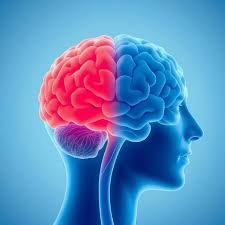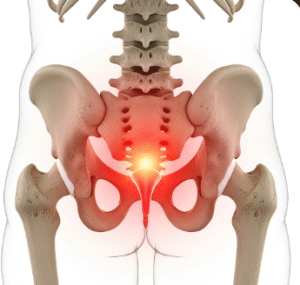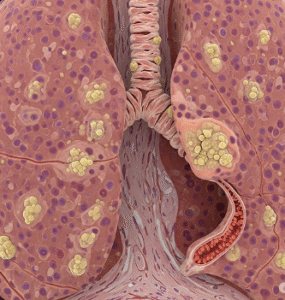Overview
Addiction withdrawal refers to the physical and psychological symptoms that occur when a person reduces or stops using a substance they are dependent on. Substances can include alcohol, nicotine, prescription medications, or illicit drugs. Withdrawal can vary in severity depending on the substance, duration of use, and individual health factors. Symptoms may range from mild discomfort to life-threatening complications. In Korea, specialized addiction treatment centers and hospitals offer comprehensive withdrawal management, including medical supervision, detox programs, psychological counseling, and rehabilitation to ensure safe recovery.
Key Facts
▶ Prevalence: Millions of people worldwide experience withdrawal when attempting to stop addictive substances.
▶ Symptoms: Sweating, nausea, anxiety, irritability, tremors, sleep disturbances, and in severe cases, seizures or hallucinations.
▶ Causes: Physical dependence on a substance, prolonged use, or sudden cessation.
▶ Risk Factors: Long-term substance use, high dosage, coexisting medical or mental health conditions.
▶ Treatment Options in Korea: Medical detoxification, counseling, behavioral therapy, medications to ease withdrawal, and ongoing rehabilitation programs.
What is Addiction Withdrawal?
Addiction withdrawal is the body’s reaction to the absence of a substance it has become dependent on. Prolonged exposure to addictive substances causes the nervous system and organs to adapt. When the substance is reduced or stopped, these adaptations lead to withdrawal symptoms.
▶ Mild Withdrawal: Anxiety, irritability, mild nausea, or insomnia.
▶ Moderate Withdrawal: Muscle aches, sweating, vomiting, diarrhea, or mood swings.
▶ Severe Withdrawal: Seizures, hallucinations, delirium tremens (especially with alcohol), and cardiovascular complications.
Note: Withdrawal is a critical phase in addiction recovery, and proper medical supervision is essential for safety and comfort.
What Symptoms Are Related to Addiction Withdrawal?
▶ Physical Symptoms: Tremors, sweating, headaches, nausea, vomiting, diarrhea, muscle cramps.
▶ Psychological Symptoms: Anxiety, depression, irritability, restlessness, mood swings.
▶ Sleep Disturbances: Insomnia, vivid dreams, or frequent waking.
▶ Appetite Changes: Loss of appetite or sudden cravings for the substance.
▶ Cardiovascular Symptoms: Rapid heartbeat, high blood pressure, or palpitations in severe cases.
▶ Neurological Symptoms: Confusion, dizziness, seizures, or hallucinations for certain substances.
▶ Behavioral Symptoms: Agitation, aggression, or difficulty concentrating.
What Causes / Possible Causes
Withdrawal occurs due to physical dependence and neurochemical adaptations caused by chronic substance use:
▶ Physical Dependence: The body becomes accustomed to the substance, leading to imbalance when it is removed.
▶ Neurochemical Changes: Alterations in neurotransmitters such as dopamine, serotonin, and GABA.
▶ Prolonged Use: Long-term consumption increases the severity and duration of withdrawal symptoms.
▶ High Dosage: Greater substance levels increase the intensity of withdrawal.
▶ Coexisting Conditions: Mental health disorders, chronic illness, or malnutrition may worsen symptoms.
▶ Rapid Cessation: Abrupt stopping without tapering increases the risk of severe withdrawal complications.
When Should I See a Doctor?
▶ Severe Symptoms: Seizures, hallucinations, rapid heartbeat, high fever, or confusion.
▶ Persistent Symptoms: Nausea, vomiting, or diarrhea lasting several days.
▶ Mental Health Concerns: Severe anxiety, depression, or suicidal thoughts during withdrawal.
▶ Medical Conditions: Presence of heart, liver, or kidney disease that could complicate withdrawal.
▶ Difficulty Coping: Inability to manage withdrawal symptoms safely at home.
Tip: Medical supervision is recommended for most withdrawal cases, especially with alcohol, benzodiazepines, or opioids, to prevent serious complications.
Care and Treatment
Withdrawal management focuses on safety, symptom relief, and psychological support:
▶ Medical Detoxification: Supervised removal of the substance under clinical care.
▶ Medications: To reduce symptoms such as anxiety, nausea, insomnia, or seizures.
▶ Hydration and Nutrition: Maintaining proper fluids and balanced diet to support recovery.
▶ Psychological Support: Counseling, cognitive-behavioral therapy, and emotional support during withdrawal.
▶ Monitoring: Continuous monitoring for severe symptoms or complications.
▶ Gradual Tapering: Reducing substance dosage slowly to minimize withdrawal severity.
Treatment Options in Korea
Medical and Hospital-Based Care:
▶ Detox Programs: Specialized hospitals offer inpatient detoxification with 24/7 supervision.
▶ Medications for Symptom Relief: Prescribed by addiction specialists to manage withdrawal safely.
▶ Emergency Support: Management of life-threatening complications such as seizures or cardiac issues.
Psychological and Behavioral Support:
▶ Individual Counseling: One-on-one therapy to address triggers, coping strategies, and emotional support.
▶ Group Therapy: Peer support groups for shared experiences and motivation.
▶ Cognitive Behavioral Therapy (CBT): Helps modify thought patterns and prevent relapse.
▶ Family Support Programs: Involving family in recovery to provide a supportive environment.
Rehabilitation & Aftercare:
▶ Long-Term Rehabilitation: Inpatient or outpatient programs focusing on sobriety maintenance.
▶ Relapse Prevention: Education, support networks, and ongoing therapy to maintain recovery.
▶ Holistic Approaches: Nutrition counseling, mindfulness, yoga, and physical exercise to strengthen resilience.
Outcome: With structured medical supervision and comprehensive support in Korea, individuals undergoing addiction withdrawal can manage symptoms safely, prevent complications, and take the first steps toward sustained recovery and a healthier lifestyle.













